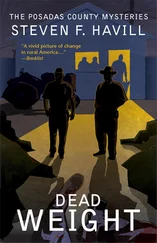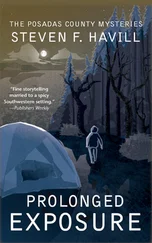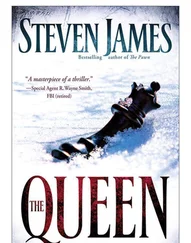Steven Levitt - Freakonomics
Здесь есть возможность читать онлайн «Steven Levitt - Freakonomics» весь текст электронной книги совершенно бесплатно (целиком полную версию без сокращений). В некоторых случаях можно слушать аудио, скачать через торрент в формате fb2 и присутствует краткое содержание. Год выпуска: 2005, ISBN: 2005, Издательство: HarperCollins Publishers Ltd., Жанр: Прочая научная литература, на английском языке. Описание произведения, (предисловие) а так же отзывы посетителей доступны на портале библиотеки ЛибКат.
- Название:Freakonomics
- Автор:
- Издательство:HarperCollins Publishers Ltd.
- Жанр:
- Год:2005
- ISBN:ISBN 0-06-083822-1
- Рейтинг книги:5 / 5. Голосов: 1
-
Избранное:Добавить в избранное
- Отзывы:
-
Ваша оценка:
- 100
- 1
- 2
- 3
- 4
- 5
Freakonomics: краткое содержание, описание и аннотация
Предлагаем к чтению аннотацию, описание, краткое содержание или предисловие (зависит от того, что написал сам автор книги «Freakonomics»). Если вы не нашли необходимую информацию о книге — напишите в комментариях, мы постараемся отыскать её.
Freakonomics — читать онлайн бесплатно полную книгу (весь текст) целиком
Ниже представлен текст книги, разбитый по страницам. Система сохранения места последней прочитанной страницы, позволяет с удобством читать онлайн бесплатно книгу «Freakonomics», без необходимости каждый раз заново искать на чём Вы остановились. Поставьте закладку, и сможете в любой момент перейти на страницу, на которой закончили чтение.
Интервал:
Закладка:
It is worth noting that these websites only listed prices; they didn’t even sell the policies. So it wasn’t really insurance they were peddling. Like Stetson Kennedy, they were dealing in information. (Had the Internet been around when Kennedy infiltrated the Klan, he probably would have rushed home after each meeting and blogged his brains out.) To be sure, there are differences between exposing the Ku Klux Klan and exposing insurance companies’ high premiums. The Klan trafficked in secret information whose secrecy engendered fear, while insurance prices were less a secret than a set of facts dispensed in a way that made comparisons difficult. But in both instances, the dissemination of the information diluted its power. As Supreme Court Justice Louis D. Brandeis once wrote, “Sunlight is said to be the best of disinfectants.”
Information is a beacon, a cudgel, an olive branch, a deterrent, depending on who wields it and how. Information is so powerful that the assumption of information, even if the information does not actually exist, can have a sobering effect. Consider the case of a one-dayold car.
The day that a car is driven off the lot is the worst day in its life, for it instantly loses as much as a quarter of its value. This might seem absurd, but we know it to be true. A new car that was bought for $20,000 cannot be resold for more than perhaps $15,000. Why? Because the only person who might logically want to resell a brand-new car is someone who found the car to be a lemon. So even if the car isn’t a lemon, a potential buyer assumes that it is. He assumes that the seller has some information about the car that he, the buyer, does not have—and the seller is punished for this assumed information.
And if the car is a lemon? The seller would do well to wait a year to sell it. By then, the suspicion of lemonness will have faded; by then, some people will be selling their perfectly good year-old cars, and the lemon can blend in with them, likely selling for more than it is truly worth.
It is common for one party to a transaction to have better information than another party. In the parlance of economists, such a case is known as an information asymmetry. We accept as a verity of capitalism that someone (usually an expert) knows more than someone else (usually a consumer). But information asymmetries everywhere have in fact been mortally wounded by the Internet.
Information is the currency of the Internet. As a medium, the Internet is brilliantly efficient at shifting information from the hands of those who have it into the hands of those who do not. Often, as in the case of term life insurance prices, the information existed but in a woefully scattered way. (In such instances, the Internet acts like a gigantic horseshoe magnet waved over an endless sea of haystacks, plucking the needle out of each one.) Just as Stetson Kennedy accomplished what no journalist, do-gooder, or prosecutor could, the Internet has accomplished what no consumer advocate could: it has vastly shrunk the gap between the experts and the public.
The Internet has proven particularly fruitful for situations in which a face-to-face encounter with an expert might actually exacerbate the problem of asymmetrical information—situations in which an expert uses his informational advantage to make us feel stupid or rushed or cheap or ignoble. Consider a scenario in which your loved one has just died and now the funeral director—who knows that you know next to nothing about his business and are under emotional duress to boot—steers you to the $7,000 mahogany casket. Or consider the automobile dealership: the salesman does his best to obscure the car’s base price under a mountain of add-ons and incentives. Later, however, in the cool-headed calm of your home, you can use the Internet to find out exactly how much the dealer paid the manufacturer for that car. Or you might just log on to www.TributeDirect.com and buy that mahogany casket yourself for just $3,200, delivered overnight. Unless you decide to spend $2,995 for “The Last Hole” (a casket with golf scenes) or “Memories of the Hunt” (featuring big-racked bucks and other prey) or one of the much cheaper models that the funeral director somehow failed even to mention.
The Internet, powerful as it is, has hardly slain the beast that is information asymmetry. Consider the so-called corporate scandals of the early 2000s. The crimes committed by Enron included hidden partnerships, disguised debt, and the manipulation of energy markets. Henry Blodget of Merrill Lynch and Jack Grubman of Salomon Smith Barney wrote glowing research reports of companies they knew to be junk. Frank Quattrone of Credit Suisse First Boston covered up an investigation into how his company dished out shares of hot initial public offerings. Sam Waksal dumped his ImClone stock when he got early word of a damaging report from the Food and Drug Administration; his friend Martha Stewart also dumped her shares, then lied about the reason. WorldCom and Global Crossing fabricated billions of dollars in revenues to pump up their stock prices. One group of mutual fund companies let preferred customers trade at preferred prices, and another group was charged with hiding management fees.
Though extraordinarily diverse, these crimes all have a common trait: they were sins of information. Most of them involved an expert, or a gang of experts, promoting false information or hiding true information; in each case the experts were trying to keep the information asymmetry as asymmetrical as possible.
The practitioners of such acts, especially in the realm of high finance, inevitably offer this defense: “Everybody else was doing it.” Which may be largely true. One characteristic of information crimes is that very few of them are detected. Unlike street crimes, they do not leave behind a corpse or a broken window. Unlike a bagel criminal—that is, someone who eats one of Paul Feldman’s bagels but doesn’t pay—an information criminal typically doesn’t have someone like Feldman tallying every nickel. For an information crime to reach the surface, something drastic must happen. When it does, the results tend to be pretty revealing. The perpetrators, after all, weren’t thinking about their private actions being made public. Consider the Enron tapes, the secretly recorded conversations of Enron employees that surfaced after the company imploded. During a phone conversation on August 5, 2000, two traders chatted about how a wildfire in California would allow Enron to jack up its electricity prices. “The magical word of the day,” one trader said, “is ‘Burn, Baby, Burn.’” A few months later, a pair of Enron traders named Kevin and Tom talked about how California officials wanted to make Enron refund the profits of its price gouging.
KEVIN: They’re fucking taking all the money back from you guys? All the money you guys stole from those poor grandmas in California?
BOB: Yeah, Grandma Millie, man.
KEVIN: Yeah, now she wants her fucking money back for all the power you jammed right up her ass for fucking $250 a megawatt hour.
If you were to assume that many experts use their information to your detriment, you’d be right. Experts depend on the fact that you don’t have the information they do. Or that you are so befuddled by the complexity of their operation that you wouldn’t know what to do with the information if you had it. Or that you are so in awe of their expertise that you wouldn’t dare challenge them. If your doctor suggests that you have angioplasty—even though some current research suggests that angioplasty often does little to prevent heart attacks—you aren’t likely to think that the doctor is using his informational advantage to make a few thousand dollars for himself or his buddy. But as David Hillis, an interventional cardiologist at the University of Texas Southwestern Medical Center in Dallas, explained to the New York Times, a doctor may have the same economic incentives as a car salesman or a funeral director or a mutual fund manager: “If you’re an invasive cardiologist and Joe Smith, the local internist, is sending you patients, and if you tell them they don’t need the procedure, pretty soon Joe Smith doesn’t send patients anymore.”
Читать дальшеИнтервал:
Закладка:
Похожие книги на «Freakonomics»
Представляем Вашему вниманию похожие книги на «Freakonomics» списком для выбора. Мы отобрали схожую по названию и смыслу литературу в надежде предоставить читателям больше вариантов отыскать новые, интересные, ещё непрочитанные произведения.
Обсуждение, отзывы о книге «Freakonomics» и просто собственные мнения читателей. Оставьте ваши комментарии, напишите, что Вы думаете о произведении, его смысле или главных героях. Укажите что конкретно понравилось, а что нет, и почему Вы так считаете.











